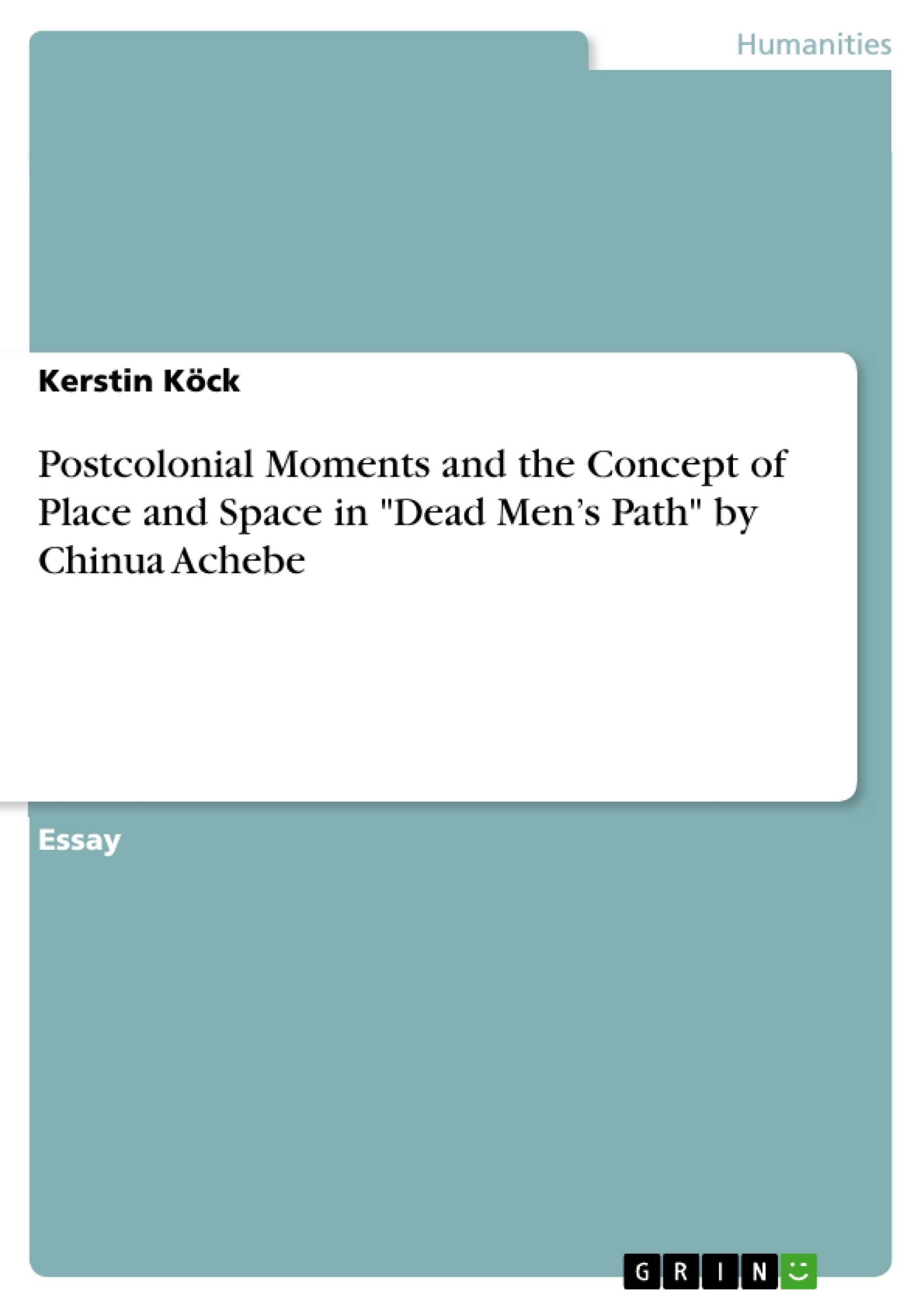In the following essay I would like to focus on the post-colonial moments in Chinua Achebe’s “Dead Men’s Path” as well as on the construction of place. I will subdivide the whole paper into two main parts. First, I will focus on the notion of postcolonialism expressed by colonialism and imperialism and how this is represented in the short story. The second part of the essay will examine the concept of place. The ideas of boundaries, as well as of places, to establish an identity will be in the centre of my investigations.
Table of Contents
- Representation of Postcolonial Moments and the Concept of Place and Space in “Dead Men's Path” by Chinua Achebe
- Postcolonial Moments in "Dead Men's Path"
- Colonialism and Imperialism
- Racial Oppression
- Imperialism
- Superficial Contact with the Natives
- Concept of Place and Space
- Identity and Boundaries
Objectives and Key Themes
This essay aims to analyze Chinua Achebe's "Dead Men's Path," focusing on the representation of postcolonial moments and the concept of place and space. The essay investigates how colonialism and imperialism are reflected in the story and how the construction of place influences the characters' identities.
- Postcolonialism and its impact on identity and culture
- The role of colonialism and imperialism in shaping societal dynamics
- The relationship between place, identity, and boundaries
- The clash between traditional beliefs and modern ideas
- The construction of a hierarchical power structure
Chapter Summaries
The first part of the essay examines the postcolonial moments in "Dead Men's Path." It explores how colonialism and imperialism manifest in the story, highlighting themes such as racial oppression, class distinctions, and superficial contact with the indigenous population. The essay analyzes the actions of Michael Obi, the headmaster, and his wife, Nancy, emphasizing their attempts to impose Western values and beliefs on the village.
The second part focuses on the concept of place and space in the story. It examines how the characters' identities are influenced by their place within the community and how boundaries, represented by the fence built around the school, serve to separate the modern world from traditional beliefs. The essay explores the significance of the sacred path and the school compound as spaces that represent opposing identities.
Keywords
The key themes and concepts explored in this essay include postcolonialism, colonialism, imperialism, place, space, identity, boundaries, racial oppression, cultural clash, and traditional beliefs.
- Quote paper
- Kerstin Köck (Author), 2009, Postcolonial Moments and the Concept of Place and Space in "Dead Men’s Path" by Chinua Achebe, Munich, GRIN Verlag, https://www.grin.com/document/1225331




